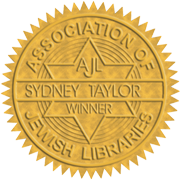Gloria's Blog
Chatting to The Children's Book Review
Chatting with Nicki Richesin of The Children's Book Review about mime, writing about Marcel Marceau, silence and the writing life.
Gloria Spielman is the author of two picture books Janusz Korczak's Children and Marcel Marceau: Master of Mime which has been awarded a Silver Medal in the 2011 Moonbeam Children's Book Awards in the category of Non-Fiction Picture Book. A former high school English teacher, Gloria has also written English teaching books and contributed to multi-media English courses. She has many more wonderful books in the works that we can look forward to reading soon.
Nicki Richesin: Congratulations on your lovely Marcel Marceau: Master of Mime. It's a beautifully compelling book about his legendary career and how he brought the world's attention back to the ancient art of pantomime, but it's also the story of how he survived World War II. What inspired you to create this well-deserved homage to Mr. Marceau?
Gloria Spielman: Thank You, Nicki. I always enjoy reading The Children's Book Review; it's such a terrific resource for anyone in the world of children's books, so I was thrilled to talk to you.
I'd much rather tell you what inspired me to write my first book, Janusz Korczak's Children, it's a far better story. My then third grade daughter had to do a project on Korczak for Holocaust Memorial Day, and that got me reading and thinking.
The truth is, the original inspiration for Marcel Marceau actually came from my friend Mandy. She was looking at Janusz Korczak and said "You know, you should write about Marcel Marceau. He was really interesting." She told me of his work with the resistance and after she left I did some reading. Mandy was right. I started to imagine the pictures. I often imagine a picture book in pictures as well as words. My editor agreed. So did the publisher. And I started to write. I wish could say I saw a wonderful mime performance when I was a child and fell in love with it, but that would be a lie.
I was astonished to learn that Marceau was a part of the French resistance. He bravely smuggled Jewish children through the forests to safety and entertained allied troops. He led such a fascinating life. Did you discover anything that surprised you when doing your research?
It was all fascinating. But there is only so much that can go into a 32 page book. One anecdote that would have made a great picture book illustration is when Marceau came face to face with the man he called his creative father, Charlie Chaplin. He told Chaplin how he paid tribute to him in his American performance and began to imitate him in the middle of Paris airport. Chaplin joined in and the two men were miming Chaplin right there in the airport. I have shared another anecdote on my website about Marceau being stopped by the police who wanted to see his papers during the war.
Marceau was quoted as saying, "People think that when we are silent, you have nothing to say. But you can make people laugh and cry through the tragedy and the comedy of life. During the war I was in the French underground, and I survived. I think very often about this: People who were 20 years old died in the war. Maybe I'm a spokesman because I am a witness of my time." In our modern world, where life is super-fast and often overwhelming, do you agree with this notion that we can still communicate through silence as Marceau famously did?
The feeling of being overwhelmed is a feeling that many people share. The myriad of ways (Facebook, cell phone, SMS, etc) we can communicate or be communicated with can give a feeling of overload. I actually touched on this last month when writing in The Forward. So many people told me they shared my irritation of the insidious piped music heard everywhere these days. A. P. Herbert writing in The Living Age feels very strongly the effect of "modern nuisances" as he describes the new communications technology. He talks of inventions that are "one more nail in the coffin of privacy and quietude" and "the end of civilization." I don't know that I'd take it that far, but it is interesting to note Herbert was writing in 1920. That nail in the coffin was just a wireless opera concert broadcast and the threat to civilization, referred to the then new wireless telephony. You can guess what he would have to say about Facebook, cell phones and Muzak.
Silence can be uncomfortable or even threatening. Think how we scramble to 'fill in the blanks' when there's a lull in the conversation. We panic when we can't find or don't even know the right words. We read negativity into silence. Conversational lulls are often filled with nervous chatter. We all know that sinking feeling when we have to comfort a mourner. We're wrack our brains, wondering, "What on earth do I say to him/her?" Jewish tradition acknowledges this beautifully. When a close family member (parents, sibling, spouse) dies the family remain at home for seven days and are visited by friends and family. The custom is to enter silently, sit close, and say nothing to the mourners unless and until they choose to speak. If they choose not to speak, that's fine. You came. Sometimes, that's enough. And the visitors are often relieved too, "Phew, so it's really ok not to say anything?"
Can we communicate through silence? We tend to pay far more attention to what people say but so much can be conveyed without words. Faces in particular show myriad nuances. Think of a smile. It can be ironic, sly, approving and more. "He smiled ironically" just doesn't have quite the same effect, does it?
I am developing school presentations on exactly this idea and the many ways we communicate.
Marceau is said to have inspired Michael Jackson's moonwalk with his act "Walking Against the Wind." His childhood idol was Charlie Chaplin, but he brought a new spin on Chaplin's little tramp with his character Bip. Why do you think through this particular character he was able to engage and connect with his audience and express himself so vulnerably and deeply?
He's a humble character this fellow Bip with very human characteristics we can all relate to. It doesn't matter who you are, what you do or where you live: Who hasn't dreamt of adventure, struggled to find his or her place in the world, felt powerless against forces greater than themselves. Marceau said, "Bip is a romantic and burlesque hero of our time. His look is turned not only toward heaven, but into the hearts of men."
Could you tell us a bit about your collaboration with Manon Gauthier on her beautiful illustrations for Marcel Marceau Master of Mime?
The illustrations are absolutely gorgeous, aren't they? But I'm afraid there was no collaboration between myself and Manon. She worked with the publisher's art department. I only saw the illustrations when I received my author's copies and I loved them right away. They were different to what I'd been imagining. I love the marriage of the writer's and artist's vision you get in picture books.
I understand you have five children and teach high school English. How do you balance your busy life with your writing life?
There are three answers. It depends on the day.
1) The Practical: When the children were young, I snatched writing time after I'd taken the older kids to pre-school and kindergarten while the baby slept or between 11 pm and 1 am. About 13 years ago we got rid of our TV, which meant so much time saved. I'm also very lucky to have a very encouraging husband, who is a competent, efficient housekeeper and Master of Laundry. He helps me find pockets of time, between the day job, the house and the kids and doesn't allow me to give up. He has an unconventional work schedule; he works evenings, so is available during the day to take care of these things. I also teach very little now; the children are much older now, they're all teenagers and are very respectful and considerate. I'm very lucky.
2) The Philosophical. Balancing your life is not really about getting up early to write or staying up into the wee hours, or taking a notebook wherever you go or even having a considerate family. No time in the world will help if you don't really want to do it. Finding time is really about finding your passion, an obsession really. It's about finding the thing you can't not do. The thing that you can't wait to come back to. That thing could be writing or painting, fixing old cars or running. It's the thing that beckons you when you're doing pretty much anything else. Along with the passion comes an obsession for finding at least some of the time. If you have the passion, time will come. So, I suppose you could say, I find the balance, because I've found the thing I love to do.
3) The Grumpy. I don't. Not really. It's so hard to find time. There's never a moment of peace and quiet. There's always someone at home. So many distractions. My day job writing EFL materials has to come first. If only I had a noise-proof, air-conditioned writer's shed in the garden and a few more hours a day.
Would you like to tell us a bit about your current projects?
I have three picture books ready and looking for a home. I have two works-in-progress, a humorous young adult book in progress with a teenage boy who believes blood is thicker than water, a mother who disagrees, new families, genes, genealogy and one boy's quest for a father. I'm also working on an adult novel, set in and around the old London library of my childhood. It's about living on the margins of society.
Both of these novels are transporting me quite far from my writing comfort zone. It's a challenge I'm enjoying immensely. Until now, I've written either picture books or texts for learners of English as a foreign language. Both genres involve paring a tale down to its bare bones, without losing its essence, while preserving its essence. It's so different from writing picture books and EFL materials. It's a liberating experience to have such a wide repertoire of words and syntax at my fingertips.
Nicki Richesin is the editor of four anthologies,What I Would Tell Her: 28 Devoted Dads on Bringing Up, Holding On To, and Letting Go of Their Daughters; Because I Love Her: 34 Women Writers Reflect on the Mother-Daughter Bond; Crush: 26 Real-Life Tales of First Love; and The May Queen: Women on Life, Work, and Pulling it all Together in your Thirties. Her anthologies have been excerpted and praised in The New York Times, the San Francisco Chronicle, The Boston Globe, Redbook, Parenting, Cosmopolitan, Bust, Salon, Daily Candy, and Babble.
When you subscribe to the blog, we will send you an e-mail when there are new updates on the site so you wouldn't miss them.






